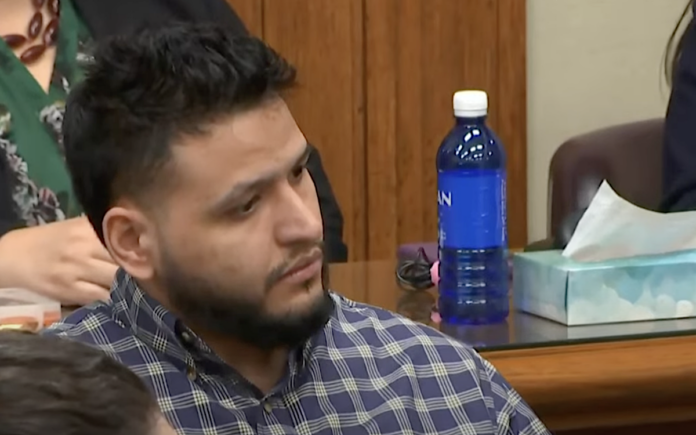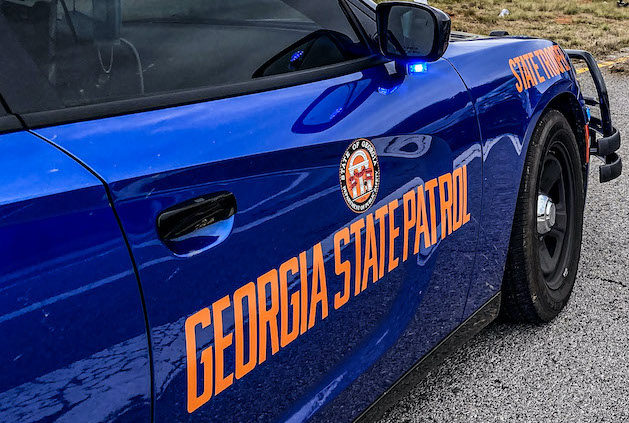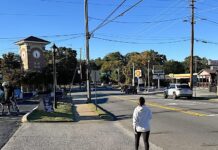
Jose Ibarra, the man accused of killing former University of Georgia student Laken Riley, has been sentenced to life in prison without the possibility of parole.
Judge Patrick Haggard handed down the sentence Wednesday in Athens-Clarke County Superior Court after finding Ibarra guilty on ten counts, AP reports. Ibarra, 26, waived his right to a jury trial, leaving the judge to decide his fate.
Judge Haggard convicted Ibarra of one count of malice murder, three counts of felony murder, and one count each of kidnapping with bodily injury, aggravated assault with intent to rape, aggravated battery, obstructing an emergency call, evidence tampering, and being a peeping Tom.
Riley’s family and friends tearfully remembered her and asked the judge to sentence Ibarra to the maximum penalty. Her mother called him a “monster,” and her father called him a “truly evil person.”
Ibarra did not react as an interpreter relayed their words to him.
- WATCH Day 4: Laken Riley murder trial
- RELATED Prosecution rests in trial over death of Georgia nursing student Laken Riley
DNA evidence
Riley’s killing added fuel to the national debate over immigration when federal authorities said Ibarra illegally entered the U.S. in 2022 and was allowed to stay in the country while he pursued his immigration case. However, Ibarra’s immigration status was not mentioned during the trial.
In her closing argument, prosecutor Sheila Ross told the judge that “Laken Riley herself has given you all the evidence you need” to find Ibarra guilty on all counts. She argued the physical evidence was sufficient and corroborated by forensic, digital, and video evidence to “twist this very powerful knot that this defendant cannot get out of. There is no way out for him.”
Pointing to that evidence, Ross said Ibarra killed Riley “because she would not let him rape her.”
During questioning and closing arguments, the defense tried to create doubt about Jose Ibarra’s guilt by suggesting that his brother, Diego Ibarra, could not be excluded as a suspect. However, prosecutors offered enough compelling evidence to counter that claim.
The District Attorney’s Office presented evidence that Ibarra’s DNA was found under Riley’s fingernails. Also, they said DNA from Riley and Ibarra was on a jacket that police found in a trash bin in his apartment complex. Security footage taken at the complex showed a man throwing away the jacket. Ibarra’s brother and another roommate identified the man as Jose Ibarra.
Prosecutor: Ibarra was ‘hunting females’
Prosecutors told the court that Ibarra was “out prowling and hunting females” on the day Riley was murdered, Feb. 22, 2024.
Surveillance video played in court shows a man wearing clothes that appear to match those seen in a selfie Ibarra snapped on his phone earlier that morning. The man was seen lingering outside the apartment of a female graduate student. That student told police someone tried to get in the front door while she was in the shower and peered through her window. When he couldn’t get into the apartment, he turned to the running trails and looked for a victim, Ross said.
Ross said that Riley’s running clothes were displaced by an attempted sexual assault, not by dragging her into the woods near Lake Herrick, where she was found.
Defense attorney Kaitlyn Beck told the judge that the evidence is circumstantial and does not definitively prove Ibarra’s guilt.
“Because the evidence is subject to more than one interpretation, it is not beyond a reasonable doubt,” she said.
Beck tried to cast doubt on a method of DNA testing used to test some of the evidence. She noted that when a fingerprint found on Riley’s phone was entered into a database, Ibarra didn’t come back as a match and that a specialist visually matched the prints.
She said there was “doubt based on what was tested and on what was not tested” because investigators did not test some of the evidence they had gathered.
Over the course of the four-day trial, which began Friday, Nov. 15, prosecutors called more than a dozen law enforcement officers, Riley’s roommates, and a woman who lived in the same apartment as Ibarra. Defense attorneys called a police officer, a jogger, and one of Ibarra’s neighbors on Tuesday and rested their case Wednesday morning.






